US Won’t Touch Seized Iranian Oil Amid Companies’ Fear Of Reprisals

US federal prosecutors have faced challenges in auctioning off 800,000 barrels of seized Iranian oil aboard a Greek tanker off the coast of Texas.

US federal prosecutors have faced challenges in auctioning off 800,000 barrels of seized Iranian oil aboard a Greek tanker off the coast of Texas.
According to the Wall Street Journal, the US companies are reluctant to unload the oil due to concerns about potential Iranian reprisals.
“Companies with any exposure whatsoever in the Persian Gulf are literally afraid to do it,” said a Houston-based energy executive involved in the matter, citing worries “that the Iranians would take retribution against them.”
This impasse sheds light on the difficulties the US government encounters in enforcing sanctions against Iran, especially as Iran has escalated its attacks against Western shipping interests as a deterrent to interdicting Iranian exports.
These tactics are seen as Tehran's strategy to prevent the West from interfering in its economic activities, added the report.
The issue comes at a time when US diplomats are quietly attempting to restart negotiations with Iran over a nuclear accord.
“That vessel’s emblematic of a much bigger drama that’s playing out about how we deal with Iranian threats,” a former US official told WSJ.
Tehran's military forces have hijacked several Western tankers in recent months, seen as retaliation for Western seizures of Iranian oil.
Meanwhile, the US Defense Department said Monday that it is deploying F-35 jet fighters and a Navy destroyer to the Middle East as a measure to deter Iran from attempting further seizures and to address Russian aggression in the region.

The Iranian president is focusing on securing drone sales in return for food during his latest trip to Africa.
According to Kayhan newspaper, affiliated with Supreme Leader Ali Khamenei's office, President Raisi is working on “extraterritorial cultivation, export of products such as drones and cars, petrochemical products, as well as technical exports".
The latest revelations will come as no shock, the barter deals of the heavily sanctioned regime the only way it can muddle through its current crisis, calling in favors from its dictatorial allies around the world from South America to Africa.
Iran has been providing drones to guerrilla groups across the Middle East for decades, and most recently, has supported Russia's invasion of Ukraine with hundreds of Shahed drones used in large scale missile attacks.
Only in March, Omar Hilal, Morocco’s ambassador to the United Nations, warned: “Iran, after undermining the stability of Syria, Yemen, Iraq and Lebanon, is in the process of destabilizing our region."
Concerns for Iran's involvement in Africa are also high. In October, the US State Department said Iran sent Ethiopia armed drones in the summer of 2021 in violation of a standing UN Security Council resolution.
The United States and its European allies have imposed a series of sanctions on Iranian individuals and companies involved with the drone program and shipments of the weapon to Russia.
Iran first denied it had supplied the drones but in early November foreign minister Hossein Amir-Abdollahian admitted the deliveries, while claiming they were sent before the Russian invasion.
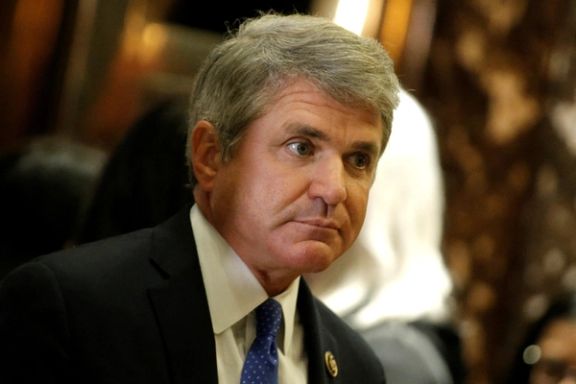
Michael McCaul, chairman of the US House foreign affairs committee, has threatened a subpoena if the administration does not brief Congress on the circumstances of Iran envoy Rob Malley’s dismissal.
McCaul (R-TX) told the Washington Post in an interview on Monday that the State Department has been less than candid with a security clearance investigation of Malley.
Saying that he has no official information on the case besides media reports, McCaul said, “if he has leaked very sensitive or classified information to our foreign adversaries like Iran or Russia, that's a very serious act that would fall under treason.”
The Congressman said he has no evidence if any violation by Malley was small in nature or serious, but “We need to be briefed in the Congress. By law, they're required to do so, and we have asked for that classified briefing.”
Iran International first reported June 29 that Malley was absent for a considerable time, his security clearance was suspended and he is under investigation related to his handling of classified documents. The Involvement of the Federal Bureau of Investigation was also reported, although until now no official details have been released, except that Malley is on “unpaid leave.”
Congress had asked for briefings by Malley in past months, but the State Department said he was unavailable due to personal matters.
McCaul said that if the administration does not agree to a classified briefing, “then we're prepared to move forward with a subpoena and eventually another contempt proceeding, if necessary. They can't hide this from the Congress and the American people. There's too much at stake.”
Malley has been replaced by Abram Paley as acting Iran envoy, who has taken over the office’s Twitter handle and Malley’s name has been removed from the Department’s website.
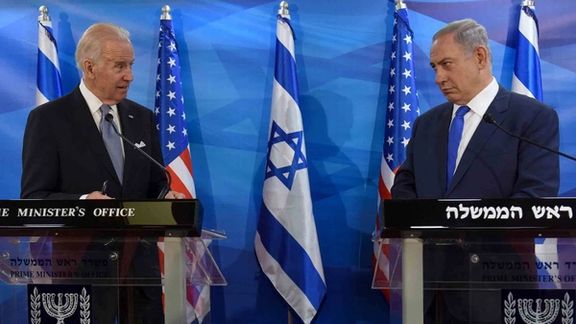
US President Joe Biden has invited Israeli Prime Minister Benjamin Netanyhau to Washington for an official visit, the White House and the prime minister's office said Monday.
The move announced after a phone conversation between the two leaders marks a shift in US - Israeli relations as most Israeli prime ministers had already received an invitation to the White House this far into their terms.
The two leaders shared a "long and warm" conversation, the Israeli statement said, focused on curbing threats from Iran and its proxies and strengthening the alliance between the two countries.
US National Security Council spokesman John Kirby said, “The two consulted on our close coordination to counter Iran, including through regular and ongoing joint military exercises. They noted that U.S. that the US-Israel partnership remains a cornerstone in preventing Iran from ever acquiring a nuclear weapon."
Netanyahu told the US President he would try to form "broad public consensus" on controversial legislation in Israel that would see its highest court stripped of much of its powers.
President Biden and his administration have voiced concern over Netanyahu’s government plans to overhaul the judicial system taking away some of the powers of unelected judges. This has led to a serious split among the public, with months of large protests by those opposing the plan.
Kirby said, "We believe strongly in the democratic institutions and the ideals of democracy that the United States and Israel represent, not just in their particular parts of the world, but across the world. And we want to see Israel be as vibrant and as viable democracy as possible.”

The United States has officially confirmed earlier reports of sending more warplanes and additional warships to the Persian Gulf region to deter Iranian moves.
The Pentagon said Monday that it will send additional F-35 and F-16 fighter jets, along with a warship to the Middle East, in a bid to monitor key waterways in the region following Iran's seizure and harassment of commercial shipping vessels in recent months.
Meanwhile, in a telephone conversation on Monday US President Joe Biden and Israeli Prime Minister Benjamin Netanyahu discussed security challenges Iran poses in the region.
“The two consulted on our close coordination to counter Iran, including through regular and ongoing joint military exercises. They noted that U.S. that the US-Israel partnership remains a cornerstone in preventing Iran from ever acquiring a nuclear weapon," White House strategic coordinator John Kirby said.
In May, the White House had announced that the Biden administration would be making a series of moves in the region, but at the time did not say what it would include.
"The (Pentagon) is increasing our presence and ability to monitor the (Strait of Hormuz) and surrounding waters," Pentagon spokeswoman Sabrina Singh told reporters. It was not clear where exactly the additional jets would be placed and how long they would stay in the region.
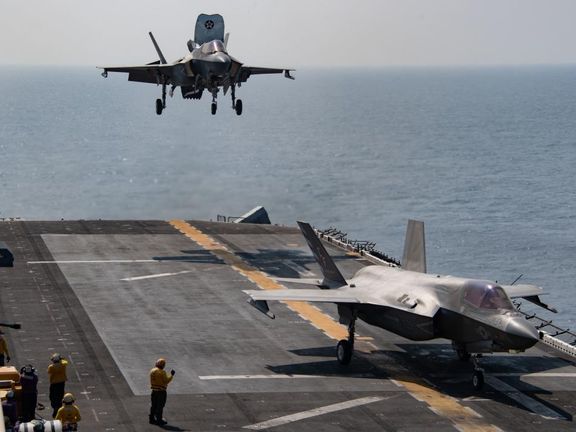
A Pentagon official had said earlier that F-16 fighters will be placed in the region, but Monday’s announcement included more weapons systems.
Iran’s latest attempts to interfere with commercial shipping occurred earlier this month when it tried to seize two vessels. The US Navy announced July 5 that it prevented Iranian naval forces from diverting the vessels including the Richmond Voyager, a super tanker managed by Chevron in the Strait of Hormuz, the narrowest part of the Persian Gulf.
Since 2019, there have been a series of attacks on shipping in strategic Persian Gulf waters at times of tension between the United States and Iran. The Revolutionary Guard has seized or attacked 15 vessels since 2019, according to US NAVY. Over the years, Iranian speedboats also harassed US Navy ships, sometimes in dangerous maneuvers.
About a fifth of the world's crude oil and oil products passes through the Strait of Hormuz, a choke point between Iran and Oman.
With the 2015 Iran nuclear deal effectively dead, Iran's relations with the West have deteriorated over the last year, with Iran supplying hundreds of kamikaze drones to Russia that have been regularly used to attack civilian and infrastructure targets in Ukraine. The US and its allies have warned Tehran to seize its military cooperation with Moscow that can expand into supplying ballistic missile later this year when a UN restriction on Iran expires.
Due to former US President Donald Trump's withdrawal from the 2015 nuclear deal and President Joe Biden not being able to revive it, Iran has been accumulating more enriched uranium and could make the fissile material for one bomb in 12 days or so, according to US estimates, down from a year when the accord was in force.
Iran denies seeking nuclear weapons, which the West sees as a threat to Israel and Persian Gulf Arab oil exporters. But its enrichment of uranium to 60-percent purity has no civilian purpose and can only be for further enrichment to above 90-percent needed for building nuclear weapons.
Iran also probably wants to use escalatory tactics to force Washington to accept its terms in recently reported diplomatic contacts between the two sides aimed at some sort of a deal over Americans held hostage by Tehran.
Iran wants Washington to agree to around $20 billion of its frozen funds in third countries to be released, which would be significant for its beleaguered economy. Iraq holds around $10 billion of debts to Iran, while South Korean banks hold another $7 billion.
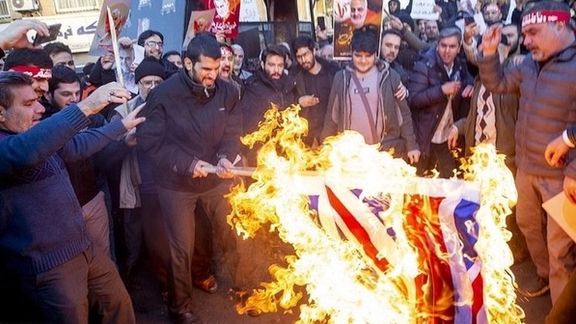
A group of UK politicians have written to Foreign Secretary James Cleverly calling on the government to adopt more stringent measures against Iran.
“Iran is the Middle East’s largest, most aggressive power, with an obvious commitment to revising the global order, with a growing alliance with Russia and a desire to deepen it," read the letter by a group of prominent British figures, including two former defense ministers, a former leader of the Liberal Democrat party, and the current chair of the parliamentary committee on foreign affairs.
The signatories included Menzies Campbell, former leader of the Liberal Democrats, Michael Fallon, former defense secretary, Alicia Kearns, chairwoman of the Commons Foreign Affairs Select Committee, General David Richards, former chief of defense staff, George Robertson, former NATO secretary general, and Mark Sedwill, former national security adviser and former cabinet secretary.
The letter highlighted Iran’s increasing audacity in its pursuit of international disruption and condemns its human rights record, nuclear program acceleration, support for proxies in the Middle East, assistance to Russia in the Ukraine conflict, and sponsorship of terrorism and kidnapping, stating that these actions contribute to Iran’s status as a clear threat to international stability and necessitate a robust response from the UK and its allies.
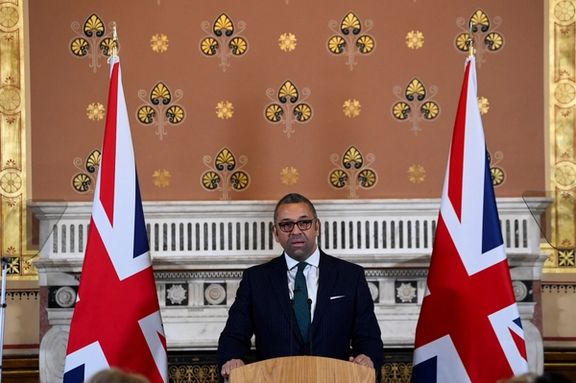
In the letter, they backed the analysis and recommendations of a report from the British conservative think tank Policy Exchange, which argues that treating Iran’s nuclear ambitions in isolation from broader security concerns is a failure of Western policy, urging a comprehensive approach to deal with the regime.
"The most obvious failure of western policy, and particularly British and European policy, has been to compartmentalize the nuclear issue diplomatically and then treat this as the central policy issue in relations with Iran,” read the report.
Stressing the need to view the nuclear program within the context of Iran’s wider aspirations and aggressive behavior, the think tank said, "Nuclear developments, while an important part of the package, must be situated within a more comprehensive understanding of the wider threat posed by Iran. Iran policy, meanwhile, must begin with the strategic threat that Iran poses, not the single, symptomatic element that is its nuclear program.”
The report also claimed that in the 2010s, the Islamic Republic shifted from a defensive strategic posture to an expansionist one, warning that “Iranian expansion across the Middle East will continue unless there is a Western – and indeed a regional Arab – policy change.”
Referring to the regime’s links to proxies in Iraq, Syria, Lebanon, and Yemen, as well as relationships with Palestinian Islamic Jihad (PIJ) and Hamas, the report argued: “The longer Iranian regional expansion is left unchecked, the more Iran will cement its hegemony over significant parts of the Levant, Iraq and the southern Arabian Peninsula, intensify its efforts to undermine and eventually destroy Israel and expand its presence beyond the Middle East.”
Moreover, the report argues that the UK government should be doing more to counter both overt and covert regime’s operations within Britain, to "prevent assassinations and kidnappings in the UK, including by tasking the Joint Terrorism Analysis Center and National Crime Agency’s intelligence capabilities, along with MI5 and MI6 to hire more Persian analysts and better fuse MI5, MI6, and NCA capabilities".
Rooting for tougher sanctions on Iran and a crackdown on its illicit finances as well as disrupting the regime’s relations with Russia, the report called for the UK government to trigger the snapback process of the Joint Comprehensive Plan of Action (JCPOA), also known as the 2015 Iran nuclear deal, to isolate the regime and gain international support for an anti-Iranian coalition.
“Iran will soon expand its support to Russia’s war in Ukraine. Having already transferred drones to Russia, Iran is likely soon to begin transfers of advanced ballistic missiles to the Kremlin,” the report underlined, forewarning of the sanctions on Iran’s ballistic missile exports that will lapse in October under the JCPOA, if the snapback is not applied.
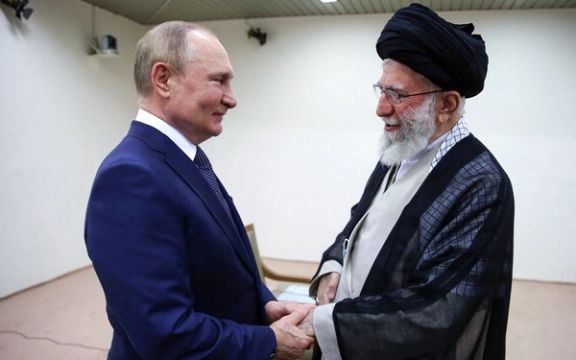
The think tank argued that triggering the snapback mechanism forces the issue of Iran among the signatories of the JCPOA and send a clear message about the international community’s stance on the regime’s nuclear program
Strengthening security and intelligence partnerships with key powers surrounding Iran, including Azerbaijan, Saudi Arabia, the UAE, Jordan, and Israel, was also suggested as a means to enhance the UK’s position in dealing with the Islamic Republic.
According to a report by The Times, UK diplomats are in talks with western allies -- France, Germany and the United States -- about reimposing sanctions on Iran amid warnings that the country is a threat to British interests “at home and abroad”.
This year, British police and the security services said they had foiled 15 plots by Iran to either kidnap or kill British or UK-based individuals it considers “enemies of the regime”.